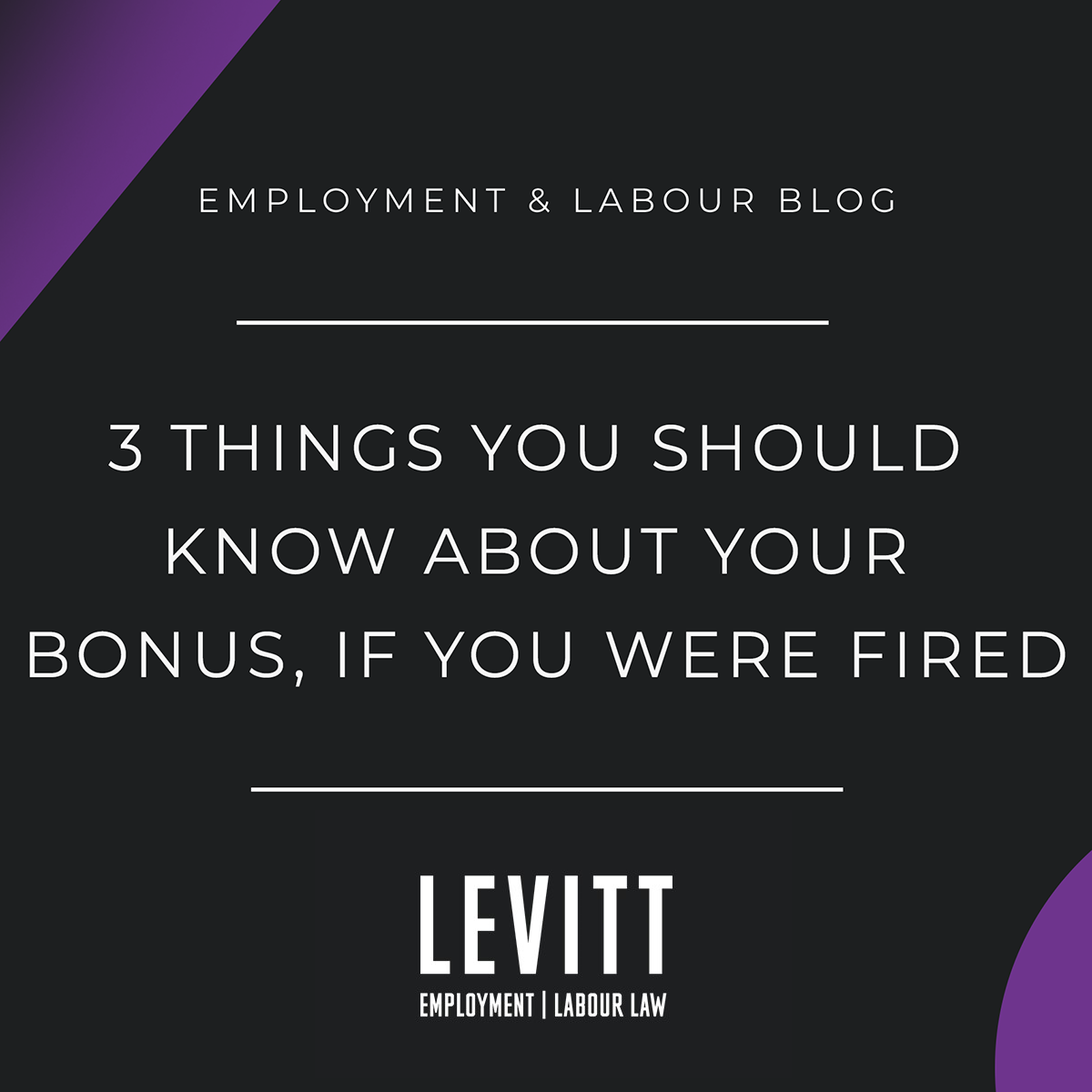When someone is fired from a company, the employers will usually attempt to keep back any entitlements the employee may have earned during their time there. It is entirely normal, although cruel, to try and take away assets accumulated and have it stipulated in a clause within the contract. In many cases, though, there can be a workaround in order to keep what you have earned while working for the company.
- According to the SCC, if contractual clauses restrict the benefits employees receive after they are fired, such as stock options, pension vesting etc., those clauses will seldom be enforceable. As the plethora of cases dismantling termination provisions in employment contracts continues to grow, very few contracts drafted before mid-2020 will be enforced.
- Without being considered “integral,” employees will now recover their bonuses and other forms of remuneration as part of the resulting damages from their dismissal. The relevant issue is whether the employee would have earned this remuneration if they had continued working during the number of months of severance awarded by the court. The objective of notice is to put the employee in the position they would have been in if they had continued to work during that period of notice. Unless there is clear exclusionary language that commands otherwise, employees will be entitled to the bonus earned during the notice period, including bonuses for the period that the employee worked prior to their dismissal.
- Contracts that aim to disallow remuneration earned during the notice period must be clear and unambiguous, as the courts will interpret these contracts strictly against the employer. The employee relationship is not treated as terminated until the period of reasonable notice expires, stipulating in a contract that a terminated employee “with or without cause” will be deprived of their bonus or other entitlements is thus insufficient. Employers must also be specific and cautious with their choice of terminology. For example, contracting that the remuneration provision in question shall not form part of the severance calculation is insufficient since the term “severance” is distinct from damages in lieu of wrongful dismissal, and the court awards such damages, not “severance.”
There have been cases settled recently which helped set a precedent. Employers must now adequately draw the employee’s attention to the clause depriving the employee of a particular entitlement for the clause to be binding. Listing the bonus plan online, though highly accessible, is insufficient. Additionally, if provisions were created to remove the remuneration effective as soon as the person was fired without continuing for the period of notice required by employment standards legislation, the entire clause would be considered invalid as it would violate the Employment Standards Act. Regarding COVID-19, the courts will attempt to extrapolate what the employee would have earned over the period of notice that the court awards in determining damages for wrongful dismissal.
To learn more about whether or not you have a lawsuit contact us today. Choose Levitt LLP When You Can’t Afford to Lose.

